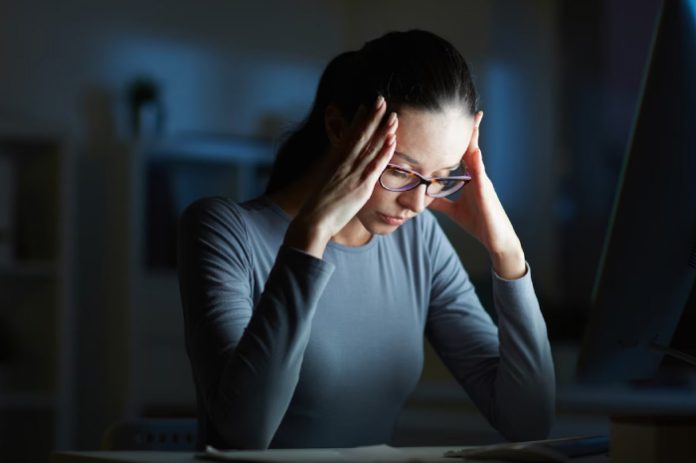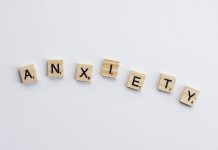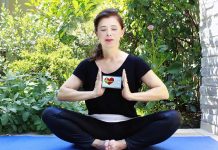Anxiety is an all-too-common experience that affects 40 million adults in the U.S. alone. While occasional anxiety is a normal part of life, excessive, ongoing anxiety that interferes with daily activities may indicate an anxiety disorder. The good news is numerous strategies exist to help manage anxiety symptoms and restore a sense of control.
In this comprehensive guide, we’ll explore practical techniques for handling anxiety day-to-day, from lifestyle changes to moment-to-moment coping mechanisms. Armed with these tips, you can create a personalized anxiety management plan. Soon, you’ll be equipped with the tools to navigate anxious moments with confidence while building healthy lifelong habits.
Understanding the Roots of Your Anxiety
Before diving into management techniques, let’s level-set on the basics of anxiety. At its root, anxiety is the body’s natural response to stress, real or imagined. Triggers vary dramatically from social interactions to work pressures to financial difficulties and more. When anxiety becomes excessive, debilitating symptoms can manifest both physically and mentally.
Common anxiety disorder symptoms include:
- Restlessness, feeling on edge
- Fatigue
- Difficulty concentrating
- Irritability
- Muscle tension
- Sleep disturbances
- Racing thoughts
- Overthinking worst-case scenarios
- Rapid heartbeat
- Shortness of breath
- Upset stomach
- Sweating
- Headaches
When to Seek Professional Treatment
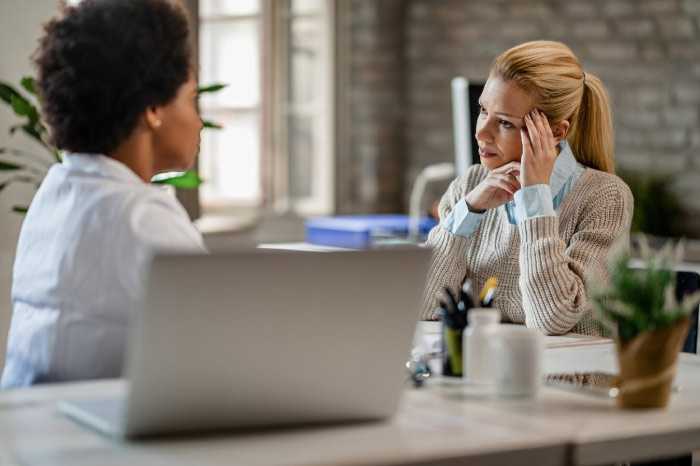
Seeking professional treatment is wise if anxiety persists at high levels or continually interferes with work, relationships, and daily functioning.
Signs that anxiety requires medical attention include:
- Daily activities feel markedly difficult
- Physical symptoms disrupt sleep, concentration, etc
- Worrying thoughts feel uncontrollable
- Self-treatment attempts consistently fail
- Suicidal thoughts emerge
- Significant weight changes or self-medication drinking/drug use
If these red flags sound familiar, meet with a primary care physician or mental health professional. Friends and family may need encouragement to take this step. No one should endure intense, unrelenting anxiety alone.
Today’s varied treatment options allow for the development of customized anxiety management plans:
1. Counseling
Psychotherapy assists in addressing thought patterns, emotional responses, and underlying issues through counselor interactions. Popular approaches like CBT focus directly on anxiety coping tactics.
2. Medication
If prescribed, antidepressants or anti-anxiety meds help rebalance brain chemistry influencing anxiety levels. They require consistency and medical oversight to maximize benefits while monitoring side effects.
3. Mindfulness Courses
Group classes on meditation, mindfulness, and gentle yoga teach practical coping techniques alongside psychological aspects of anxiety. Developing mental skills reduces dependency on medication alone.
4. Support Groups
Sharing personal experiences in an understanding community environment combats isolation and normalizes anxiety struggles. Support groups exist both locally and online.
5. Intensive Programs
Partial hospitalization allows full immersion in anxiety recovery techniques if severe or debilitating anxiety prevents normal functionality. For those needing intensive support, entering an inpatient rehab program allows 24/7 access to medical care, counseling, group therapy, and other interventions aimed at developing healthy coping strategies. Recovering from severe anxiety often requires reshaping thought patterns, identifying emotional triggers, strengthening relationships, and committing to a lifestyle of self-care.
Seeking counseling, medication or structured programs carries no shame – it signifies a commitment to health. Support others in your life by pursuing professional anxiety treatment. Their journey back to mental wellness will be life-changing. Apart from seeking professional treatment, implementing certain lifestyle changes helps you manage anxiety in your day-to-day life.
Lifestyle Adjustments for Anxiety Relief
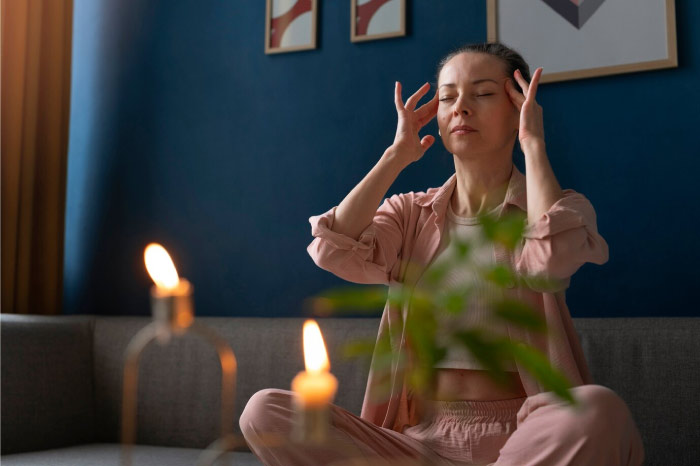
While anxiety itself centers on mental health, adopting a few key lifestyle changes can help minimize anxiety triggers. Think of these strategies as constructing a strong foundation from which other coping methods can build.
Make Physical Activity a Priority
Engaging in regular cardiovascular exercise has repeatedly demonstrated mental health benefits that aid anxiety management. Both the act of working out and the biochemical changes exercise induces in the body help tackle anxiety symptoms.
Benefits include:
- Releasing endorphins that elevate mood
- Alleviating muscle tension
- Improving sleep
- Sparkling brain connectivity growth
- Long-term stress reduction
Aim for 30 minutes of moderate exercise at least 3-5 days per week. This can include activities like walking, jogging, cycling, swimming, dancing, and more. Even simple stretches and bodyweight circuits make a difference over being sedentary.
If motivation is lacking, start small with 10-15 minutes per day, enlist a workout buddy for accountability, and track progress. Each completed workout serves as a tangible accomplishment.
Prioritize Restorative Sleep
Quality sleep directly correlates with mental health, making it foundational for anxiety relief. Adults should aim for 7 to 9 hours of restful sleep per night. Try going to bed 15-30 minutes earlier until you find your optimal bedtime for feeling refreshed upon waking.
Tips for high-quality sleep include:
- Stop screen time at least one hour before bedtime
- Establish a calming pre-bed routine
- Limit caffeine, alcohol, and heavy meals before bed
- Make your sleep environment cool, quiet, and comfortable
- Use white noise or sleep masks if needed
- Try gentle yoga sequences before lying down
Keep track of mood changes after a poor night’s rest to reinforce the sleep-anxiety connection. Making sufficient sleep a priority builds resilience during stressful times.
Adjust Dietary Habits

A nutritious, balanced diet provides energy while minimizing inflammation, stabilizing blood sugar, and supporting gut and brain health. These factors influence baseline stress levels and mental health.
Dietary recommendations for anxiety relief include:
- Minimizing processed foods, refined carbs, and added sugars
- Focusing on fruits, vegetables, lean proteins, healthy fats
- Staying hydrated with water instead of sugary drinks
- Limiting or avoiding caffeine and alcohol
- Considering an elimination diet to identify food sensitivities
While dietary changes require effort initially, subtle shifts add up; energy levels increase, and you’ll likely notice relief from anxiety symptoms over time.
Practice Relaxation Techniques
Mastering relaxation strategies provides accessible tools to mitigate anxiety at the moment when symptoms strike. These techniques counter the body’s natural “fight-or-flight” stress response by triggering opposite physiological changes.
Benefits of relaxation techniques include:
- Lower blood pressure and heart rate
- Slowed breathing
- Muscle relaxation
- Reduced sweat gland activity
- Decreased oxygen consumption
This calms both the body and mind while managing anxious thoughts and emotions. Explore various relaxation methods to determine which resonates most. Useful techniques include:
Deep Breathing
Perhaps the easiest go-to relaxation strategy – is simply to focus on taking longer, slower breaths. Inhale deeply through the nose, direct air into the belly by placing one hand on the stomach, then exhale slowly out the mouth. Repeat for 5-10 breaths whenever anxiety surges. Apps provide guides.
Progressive Muscle Relaxation
Systematically tense and relax muscle groups throughout the body while focusing inward. Apps or audio guides are useful when first learning this technique.
Meditation
Numerous meditation styles exist, most centering on stillness, controlled breathing, and quieting the mind. Even 5-10 minutes daily provides anxiety relief. Popular forms include mantra repetition, mindfulness meditation, breathwork, and guided visualizations. Explore types to discover preferences.
Yoga
Gentle yoga combines physical movement with meditation. Flows incorporating poses to open the chest, relax facial muscles, and stimulate the vagus nerve that regulates stress response are best for anxiety.
Visualization
Picture a peaceful scene activating the senses – maybe waves lapping on the shoreline or stargazing on a clear night. Mentally escape anxiety triggers by imagining a serene environment. Add relaxing music to amplify the experience.
Mindfulness
The practice of staying present in the moment instead of spinning in “what if” thinking patterns counteracts anxiety. Grounding techniques redirect focus to sensory details – note five things you see, four things you hear, three things you feel, two things you smell, and one thing you taste.
The chart given below shows the percentage of activities favored by Americans in reducing stress.
Moment-to-Moment Coping Strategies
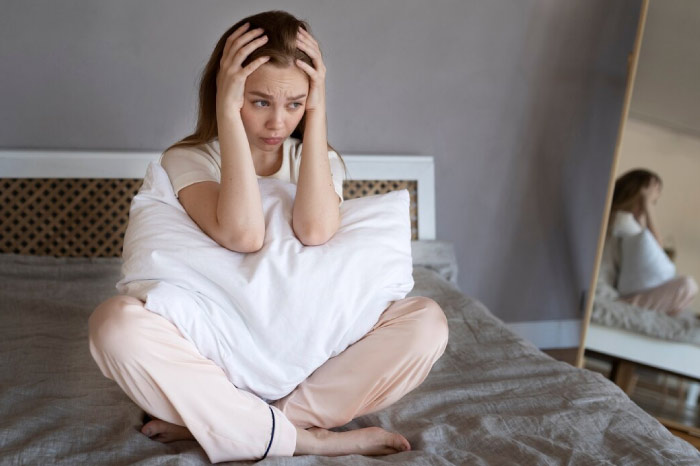
Once you lay a healthy lifestyle foundation and understand science-backed relaxation techniques, several helpful strategies exist for managing anxiety day-to-day and in the moment when symptoms strike:
Identify triggers
and Increase self-awareness around personal anxiety triggers. Keep a journal detailing anxiety episodes, suspected triggers, thoughts, and emotional responses. Patterns will emerge over time. Prepare coping tactics in advance for common trigger situations.
Progressive checking
When fixating on a specific worry, limit repetitive checking for reassurance. For example, constantly monitoring the news while waiting for COVID-19 test results amplifies anxiety. Set limited times to check updates.
Mindset adjustment
Counter anxious thinking by addressing distorted thought patterns. Ask yourself if the worst-case scenario you’re imagining is likely to materialize. Identify past examples when worrying was unproductive. Reframe situations more positively.
Focused breathing
When emotions intensify, pause to take 5-10 deep slow breaths. This short break often minimizes physiological aspects of anxiety like rapid heart rate.
Sensory grounding
Tune into sensory surroundings – the feel of the ground beneath your feet, the smell of coffee brewing, the sound of wind chimes. Noticing details draws focus to the present, anchoring racing thoughts.
Guided meditation
Keep handy short 3-5 minute guided meditation recordings. Listen while walking the dog or waiting in lines to calm the mind. Insight Timer and SoundCloud offer excellent free resources.
Yoga movement
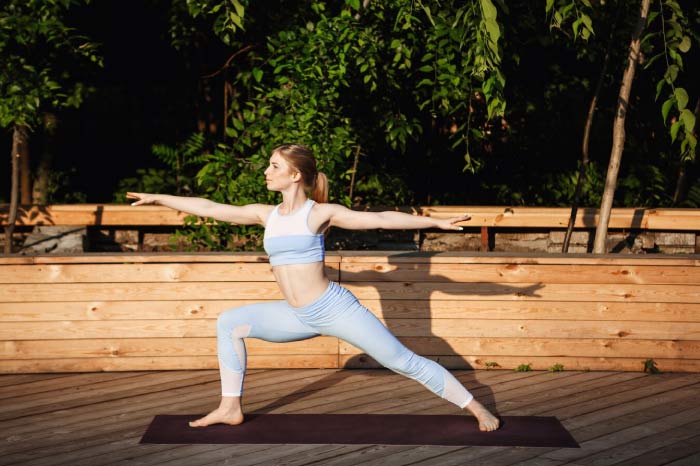
Simple yoga flows stimulate the vagus nerve to soothe the nervous system. For example, slowly alternate shoulder rolls while holding opposite elbows. Even 30 seconds can recalibrate an anxious mindset.
CBT Thought log
Journal irrational thoughts and cognitive distortions associated with anxiety triggers, then list rational responses. This cognitive behavior therapy exercise reveals how skewed thinking exacerbates anxiety.
Lighthearted distractions
When anxious preoccupations escalate, deliberately shift focus onto something entertaining and positive – watch funny pet videos, listen to a comedy podcast, or video chat with a friend. Break the rumination cycle.
Seek social support
Connect with understanding people in your support system. Voice struggles to close confidantes offering non-judgmental listening. Feeling emotionally heard eases loneliness.
Self-care rewards
Counterbalance productivity pushes. Schedule enjoyable low-stakes activities that rejuvenate your soul – crafting, dancing, and exploring nature. Make leisure time non-negotiable using calendar reminders if needed.
Lifestyle recalibration
If anxiety regularly overwhelms you despite coping attempts, reevaluate daily commitments. Assess where obligations deplete reserves, leaving minimal energy for self-care. Determine what to offload or outsource to reduce pressure.
Conclusion
In conclusion, managing anxiety in daily life begins with self-awareness, lifestyle tweaks to build mental resilience, adopting healthy thought patterns, and mastering moment-to-moment coping strategies. Seeking community support and professional treatment as needed are also key elements for sustained success.
With personalized consistency using recommendations in this guide, anxiety loses its grip, and you reclaim control little by little through deliberate self-care. Soon, lighter, more confident days await where anxiety no longer dictates life’s terms. Our minds and bodies are remarkably adaptable, especially when determined spirits commit fully to wellness. You’ve got this!
Occasional stress-induced anxiety is normal. But if unrelenting worry, panic attacks, avoidance behaviors, or physical symptoms persist in disrupting work, activities, or relationships, seek medical guidance. Keeping issues private backfires long-term.
When panic attacks strike unexpectedly, first move somewhere safe and focus on taking slow deep breaths. Splash cool water on your face, stretch, or meditate using a quick 3-5 minute recording. Remind yourself symptoms will pass soon. Stay hydrated and rest afterward.
Offer compassionate listening while avoiding judgment or downplaying concerns. Share uplifting stories of others recovering from anxiety to normalize it. Research treatment options, and gently suggest seeing a doctor if significant lifestyle impacts persist. Your support makes a difference!
Magnesium assists cell signaling, vitamin B influences neurotransmitters, omega-3s reduce inflammation, vitamin D affects serotonin levels, and chamomile and green tea have anti-anxiety compounds. Discuss nutritional supplements with your doctor.
While anxious episodes may recur lifelong to some degree, consistent quality treatment enables the development of effective management skills so anxiety minimally impacts work, relationships, and activities long-term.
Caffeine, alcohol, high sodium, sugars, saturated fats, processed ingredients, and nicotine can aggravate anxiety by spiking cortisol and blood sugar levels as well as disrupting sleep, hydration, and gut health.
Combining medication with counseling is often most effective, especially when anxiety is moderate to severe. Seek medical advice to determine if anxiety medications should supplement your therapy efforts.
Emerging research reveals influential gut-brain connections, with probiotic supplements demonstrating potential anxiety relief benefits. Anti-inflammatory diets may also assist with immune regulation.
Wearable devices providing guided breathing, heart rate variability tracking, and short mindfulness interventions can strengthen anxiety coping skills and daily mental wellness.
Exercise benefits brain connectivity, endorphin release, cardiovascular health markers, and oxygen circulation that counter anxiety. Even light walking helps.
Animal interactions boost oxytocin and lower cortisol hormones to reduce anxiety. Simply petting dogs or horses creates positive impacts.
Myths that you’re weak, anxiousness will persist forever, or that asking for help means failure should all be rejected. Anxiety is treatable through various supportive resources.


